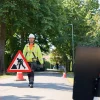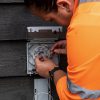Openreach and UK ISPs Reach Deal on Automatic Compensation
After some disagreement Openreach (BT) and five major retail ISPs appear to have finally reached agreement on payments as part of Ofcom’s new automatic compensation system, which from “early 2019” will require them to compensate consumers for a total loss of fixed broadband and phone connectivity.
The voluntary system, which should be adopted by all of the UK markets largest retail ISPs (full details), requires providers to compensate consumers by £8 per day for delayed repairs following a loss of broadband service (assuming it isn’t fixed within 2 working days – most faults are). On top of that missed appointments would also attract compensation of £25 and a delay to the start of a new service would be £5 per day.
Furthermore the regulator also told ISPs that they’d have to pay out during highly contentious “force majeure-type events“, such as damage caused by extreme weather or strikes etc. One catch with this costly system is that Ofcom only forced the rule on retail providers and not their network suppliers.
Advertisement
The situation created some frustration among ISPs, not least because many of the broadband faults experienced by related ISPs will physically occur on Openreach’s side of the network (excluding Virgin Media and other providers that have their own infrastructure). Ofcom ruled that such issues should be “subject of industry negotiations” and the Office of the Telecoms Adjudicator (OTA) duly facilitated.
Naturally the ISPs wanted Openreach’s related Service Level Guarantee (SLG) payments to reflect the impact they’d suffer from Ofcom’s new Code, but there was disagreement over this point. Back in the summer of 2018 we highlighted that ISPs (i.e. BT, TalkTalk, Sky Broadband etc.) were still pushing for higher payments (here) and the OTA noted how “both sides … remain some distance apart.”
Fast forward to the end of this year and, despite negotiations exceeding the 6-month period of OTA facilitation, a deal has finally been reached (subject to a 12-month review of Cancelled Provisions).
A Spokesperson for Openreach told ISPreview.co.uk:
“Automatic compensation is the right thing to do for customers, and that’s why we’ve been proactively compensating our wholesale customers for every appointment we miss, and any delays to repairs and provisions, since 2008.
We have fully supported Ofcom’s voluntary Code of Practice since its inception, and are pleased to have reached an agreement with those Communication Providers intending to offer automatic compensation.
Compensation will be paid when delays caused by Openreach occur, including where third parties prevent us from accessing the network.
Automatic compensation will not be paid when there are measures beyond our reasonable control – caused by events such as flooding. This is a well understood exclusion which operates under our existing Service Level Guarantee (SLG) arrangements.”
Our industry sources indicate that Openreach’s final offer to ISPs has improved quite a bit over the starting point and the cover for third-party delays is also to be welcomed (e.g. vehicles parked in front of a cabinet or a pole on private land that engineers can’t get access to), but providers continue to have some concerns.
Advertisement
Ofcom has separately set tougher Quality of Service (QoS) standards to encourage improvement by Openreach (here). On top of that ISPs had hoped that any gaps in the fund being set aside by the telecoms giant might also be filled by further such improvements (i.e. eventually removing the need to pay compensation altogether), although Openreach is allegedly said to have baulked at that concept (very difficult to deliver).
Meanwhile Openreach’s steadfast position not to pay out during “force majeure-type events” has caused some irritation, particularly while Ofcom continues to insist that retail ISPs will have to cover the cost of that themselves. As one industry source told us, “ultimately ISPs are going to end up paying for Openreach’s failures.”
Ofcom believes that the new system will offer “incentives for providers to improve service quality“, although it’s equally likely to result in all of us needing to pay noticeably higher prices for our fixed line broadband connections. The fact that some ISPs, such as BT, have already squeezed in two price hikes within the past 12 months may be an early indication of this.
The regulator has previously estimated that up to 2.6 million UK customers could receive up to £142 million per year in automated compensation payments under the new system, which is bound to have an impact on service cost.
Advertisement
Given the above it’s little wonder that all of the markets smallest players have chosen not to sign-up, although some of those have already been offering money-back guarantees or general compensation for extended outages as par-for-the-course.
Mark is a professional technology writer, IT consultant and computer engineer from Dorset (England), he also founded ISPreview in 1999 and enjoys analysing the latest telecoms and broadband developments. Find me on X (Twitter), Mastodon, Facebook, BlueSky, Threads.net and Linkedin.
« Welsh Government Issue Statement on Broadband Roll-out Progress

















































Comments are closed